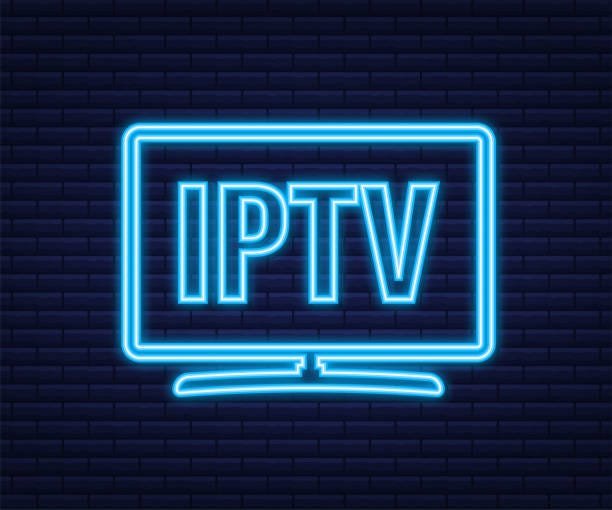is iptv legal in uae
is iptv legal in uae ? the first IPTV Provider in UAE
is iptv legal in uae ? Yes with IPTV SMARTERSPRO the IPTV service is 100% legal
buy iptv The IPTV Provider N1 in UAE : https://iptvsmarterspro.ae (THE Official IPTV SMARTERS PRO IN UAE)
What is IPTV ? In recent years, the landscape of television entertainment has undergone a significant transformation, thanks to the emergence of Internet Protocol Television. This innovative technology has revolutionized the way we consume television content, offering viewers unprecedented flexibility, choice, and interactivity. In this comprehensive guide, we delve deep into the world of IPTV, exploring its origins, functionalities, benefits, and future prospects.
The Basics
At its core, it refers to the delivery of television content over Internet Protocol (IP) networks. Unlike traditional methods such as satellite or cable television, which rely on dedicated infrastructure for signal transmission, this service leverages the ubiquity and efficiency of the internet to distribute media to viewers.
The architecture of it typically involves the transmission of video streams encoded as IP packets over broadband connections. These packets are then received by a set-top box, smart TV, or multimedia device, decoded, and displayed on the viewer’s screen in real-time. Additionally, IPTV services may offer features such as video on demand (VOD), time-shifted viewing, and interactive applications, enhancing the overall viewing experience.
Origins and Evolution
While the concept of delivering television content over IP networks dates back to the early 1990s, the modern incarnation of IPTV began to gain traction in the late 2000s. This shift was driven by advancements in broadband infrastructure, compression technologies, and the proliferation of connected devices.
Initially, IPTV services were primarily deployed by telecommunications companies seeking to diversify their offerings and compete with traditional cable and satellite providers. These early deployments focused on delivering live TV channels and video on demand to subscribers through proprietary platforms.
Over time, IPTV has evolved to encompass a broader range of services and business models. Today, consumers can choose from a plethora of IPTV providers, ranging from traditional pay-TV operators to standalone streaming services and over-the-top (OTT) platforms. This diversity has fostered competition and innovation in the IPTV market, leading to improved content quality, affordability, and accessibility for viewers worldwide.
what is iptv : Key Features and Functionalities
One of the primary advantages of it is its versatility and flexibility in delivering television content. Unlike conventional broadcast technologies, which are constrained by fixed channel lineups and schedules, yhis service offers viewers greater control over what, when, and how they watch.
Some of the key features and functionalities of it include:
Live TV Streaming: enables real-time streaming of live television channels over the internet, allowing viewers to tune in to their favorite programs as they air.
Video on Demand (VOD): the services often include a vast library of on-demand content, including movies, TV shows, documentaries, and other multimedia offerings. This allows viewers to watch content at their convenience, without being tied to broadcast schedules.
Time-Shifted Viewing: With this service, viewers can pause, rewind, or fast-forward live TV programs, providing greater flexibility in managing their viewing experience. Time-shifted viewing features also enable catch-up TV, allowing users to watch missed episodes or segments of shows on-demand.
Interactive Applications: its platforms may integrate interactive features such as electronic program guides (EPGs), interactive advertising, gaming, social media integration, and personalized recommendations. These interactive applications enhance viewer engagement and provide a more immersive entertainment experience.
Multi-Screen Support: IPTV services are compatible with a wide range of devices, including smart TVs, set-top boxes, smartphones, tablets, and computers. This multi-screen support enables viewers to access their favorite content anytime, anywhere, across multiple devices.
Benefits
The adoption of IPTV offers several benefits for both consumers and service providers:
Expanded Content Selection: IPTV provides access to a vast array of television channels, VOD libraries, and niche content that may not be available through traditional broadcast channels. This expanded content selection caters to diverse audience preferences and interests, ensuring that viewers have ample choices to suit their tastes.
Enhanced Viewing Experience: With features like on-demand content, time-shifted viewing, and interactive applications, IPTV offers a more personalized and engaging viewing experience compared to traditional TV. Viewers have greater control over what they watch, when they watch it, and how they interact with the content.
Cost-Effectiveness: IPTV services often offer competitive pricing models and flexible subscription plans, allowing consumers to customize their viewing experience and avoid paying for channels or content they don’t need. This cost-effectiveness makes IPTV an attractive alternative to traditional pay-TV services for budget-conscious viewers.
Improved Accessibility: By leveraging the internet for content delivery, IPTV eliminates geographical barriers and enables access to television content from anywhere with an internet connection. This improved accessibility is especially beneficial for viewers in remote or underserved areas who may have limited access to traditional TV services.
Advanced Technology Integration: IPTV platforms leverage advanced technologies such as high-definition video, digital audio, adaptive streaming, and cloud-based infrastructure to deliver a seamless and high-quality viewing experience. These technological advancements ensure reliability, scalability, and future-proofing of IPTV services.

Challenges and Considerations
Despite its many benefits, it faces certain challenges and considerations that need to be addressed:
Bandwidth Requirements: Streaming high-quality video content over the internet requires significant bandwidth, which may pose challenges for viewers with limited internet connectivity or data caps. Ensuring adequate broadband infrastructure is essential to support the widespread adoption of IPTV.
Content Licensing and Rights Management: Securing the necessary licenses and rights to distribute television content can be complex and costly for IPTV providers. Negotiating agreements with content owners, navigating copyright laws, and addressing piracy concerns are ongoing challenges in the IPTV industry.
Quality of Service (QoS) Issues: IPTV services rely on stable internet connections to deliver a seamless viewing experience. Factors such as network congestion, latency, and packet loss can degrade the quality of service, leading to buffering, pixelation, or playback interruptions. Implementing robust network infrastructure and Quality of Service (QoS) mechanisms is crucial to mitigate these issues.
Regulatory and Legal Considerations: IPTV services operate within a complex regulatory landscape that varies by jurisdiction. Compliance with local broadcasting regulations, content censorship laws, and consumer protection requirements is essential for IPTV providers to avoid legal challenges and regulatory scrutiny.
Competition and Market Fragmentation: The proliferation of IPTV providers and streaming platforms has led to increased competition and market fragmentation. While this diversity benefits consumers by offering more choices, it also poses challenges for IPTV providers in terms of differentiation, customer retention, and monetization strategies.

Future Trends and Outlook (is iptv legal in uae)
Looking ahead, the future of this service appears promising, driven by ongoing technological advancements, changing consumer preferences, and evolving market dynamics. Some key trends shaping the future of IPTV include:
5G and Next-Generation Networks: The rollout of 5G networks promises to deliver faster speeds, lower latency, and greater network capacity, which will enhance the quality and reliability of services. 5G technology also enables new use cases such as ultra-high-definition (UHD) streaming, immersive media experiences, and edge computing for content delivery.
Hybrid and Converged Services: IPTV providers are increasingly offering hybrid and converged services that combine traditional broadcast TV, IPTV, and OTT streaming into unified platforms. This convergence allows viewers to seamlessly access a wide range of content across multiple delivery channels, devices